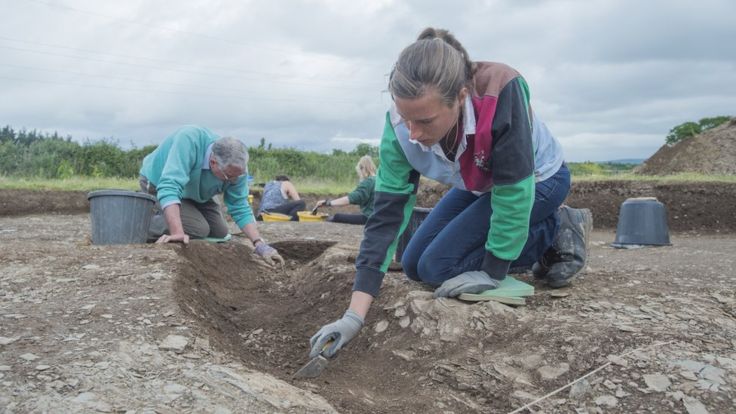“Until recently, who would have thought that Ipplepen village was once ‘plugged in’ to the Roman empire?” – Danielle Wootton, liaison officer for the Portable Antiquities Scheme

PHOTO: bbc.com
IPPLEPEN, DEVON – Archaeologists have discovered a Romano-British settlement that has raised problematic questions for the whole British archaeological community. Until now, nobody had found evidence that the Roman Empire in Britain extended farther than Exeter, an area 20 miles north-east of Ipplepen. Most archaeologists and historians had thought that the rural areas of Britain had not been affected by the Roman invasions. Ipplepen is challenging that. BBC calls it a “puzzling settlement”.
In AD 55, Julius Caesar invaded Britain as part of his Gallic Wars. The Celtic tribes of Britain fought back, but were eventually overrun and defeated by the superior Roman war machine. The Romans established the Province of Britain, holding the southeast, but could not go as far as Scotland. The northern tribes were too fierce, and so the Romans gave up, withdrew from the north, and built a wall to keep the hostile Scottish tribes out.
The Romans built London, and introduced their own culture and technology on Britain, levying taxes in their wake. A distinct new culture formed in Britain, called Romano-British, as the Romans introduced new concepts like urban planning, new agricultural techniques, industrial production, and architecture. Trade was centered around the North Sea and the Eastern Channel, focused on the Strait of Dover. The Romans imported coin, pottery, olive oil, wine, fish products, and many other products. Most of the trade was established privately between the Roman state and local generals and officials.
In 2009, amateur metal detectorists Jim Wills and Dennis Hewings contacted archaeologist Danielle Wootton with an important find: Roman coins in Ipplepen, an area thought previously to be untouched by Roman rule. Until now, there was still not enough evidence to say, officially, that the Roman Empire extended as far as Ipplepen, but, since 2009, hundreds of volunteers have worked on the site and have been carefully recording their findings. Now, it has been announced that not only are there Roman coins at Ipplepen, but there’s significant amounts of Roman pottery that originated in other parts of the Roman Empire and were moved into Britain.
“When we announced the find at a community meeting about three years ago, the hall was absolutely packed with local people and there was an electric atmosphere…It’s probably going to take us a very long time for us to fully understand the nature of the settlement and how long it was occupied for.” – Danielle Wootton
These vessels indicate that the people living in Ipplepen at the time adopted Roman culture in their eating and drinking. They had a taste for Mediterranean wine and olives. The team has also unearthed a Roman road and evidence that it was in use and well kept, as there were several repairs made on the road while it was in use at the time.
The site’s troubling for archaeologists, however, because unlike other Romanized areas of Britain, it seems the Celtic tribe there, the Dumonii, kept their own cultural identity rather than becoming entirely Romanized. They merely traded with the Romans and adopted the parts of Roman culture they wanted and liked. It’s an unusual narrative in Britain. The site at Ipplepen is unique.
Archaeologists and volunteers with the British Museum, Devon County Council, and Cotswold Archaeology have banded together to form the Ipplepen Archaeological Promect. They will continue to work on the site as they have for two years, hoping to uncover more of the area’s history.
“I’ve been detecting for many years, but it’s always thrilling to dig up something you recognize is really important.” – Amateur metal detectorists Jim Wills

